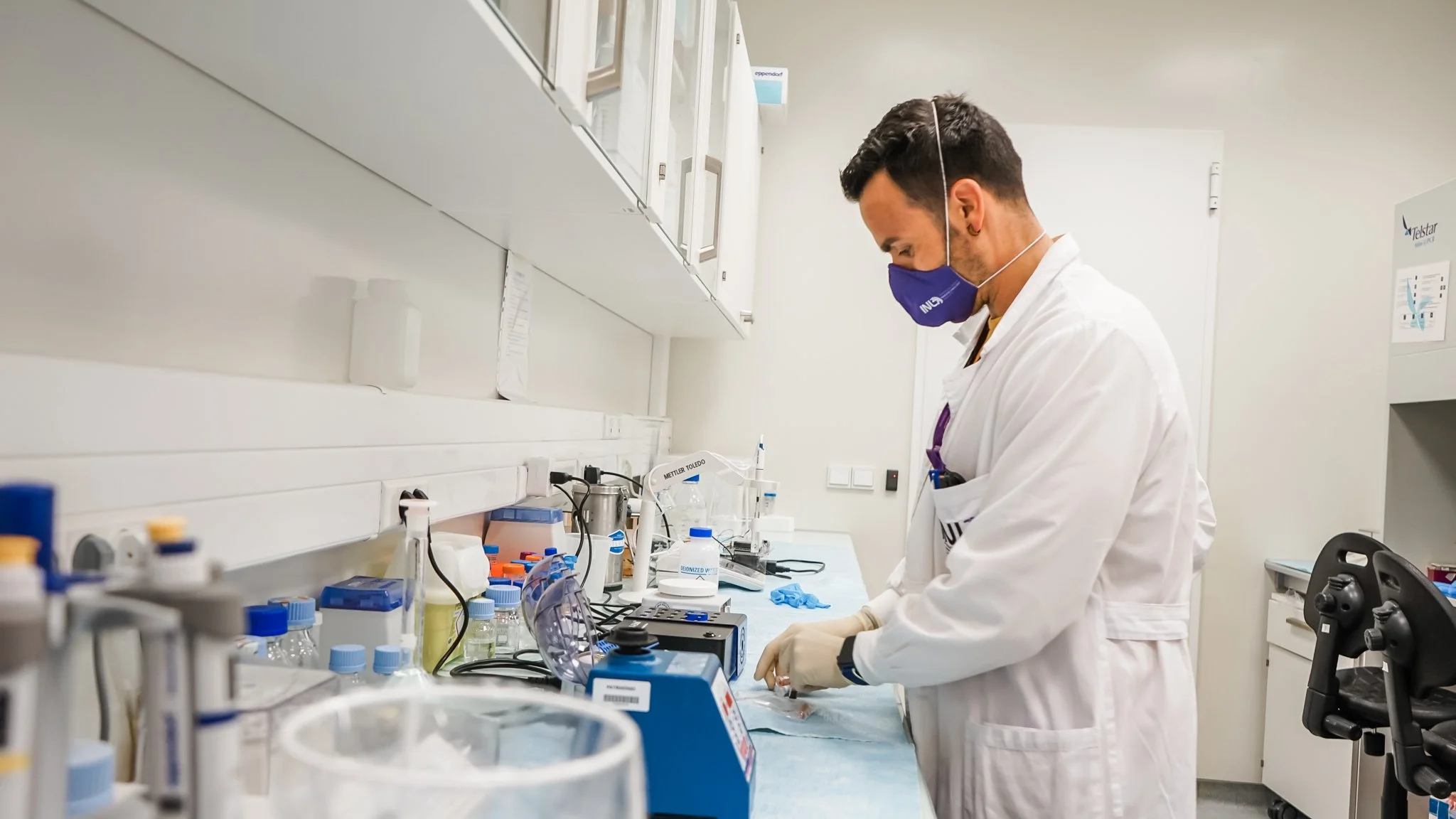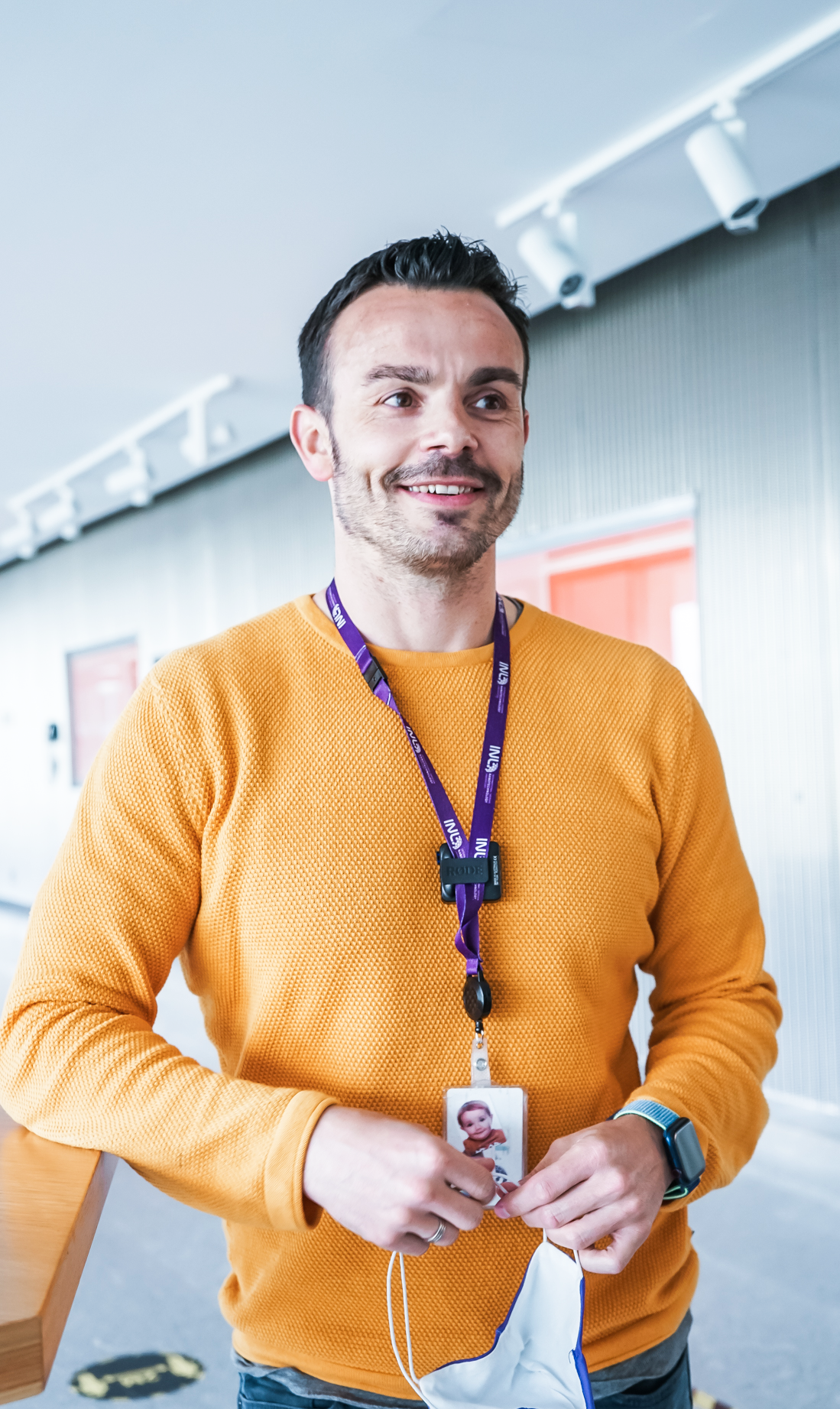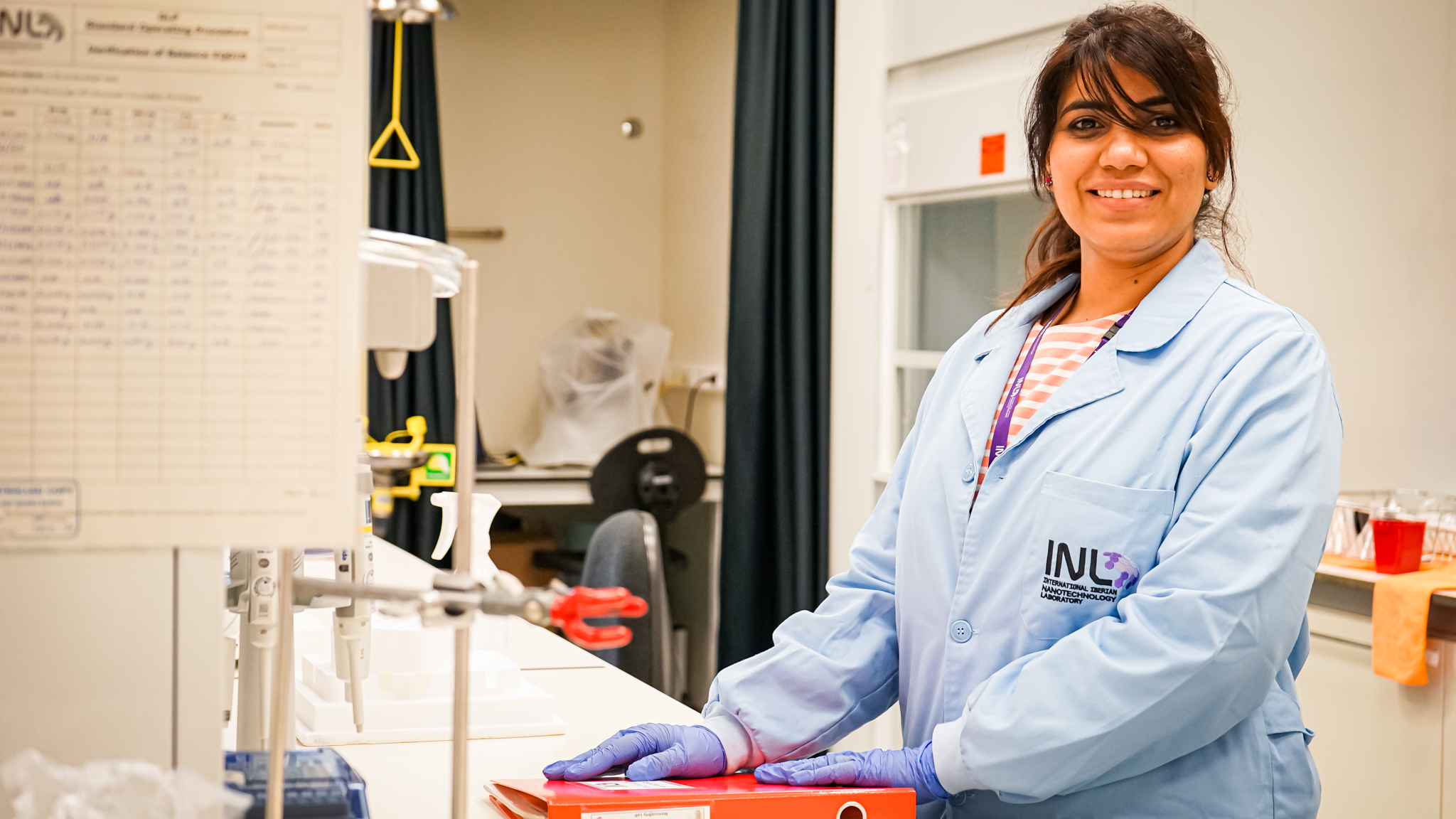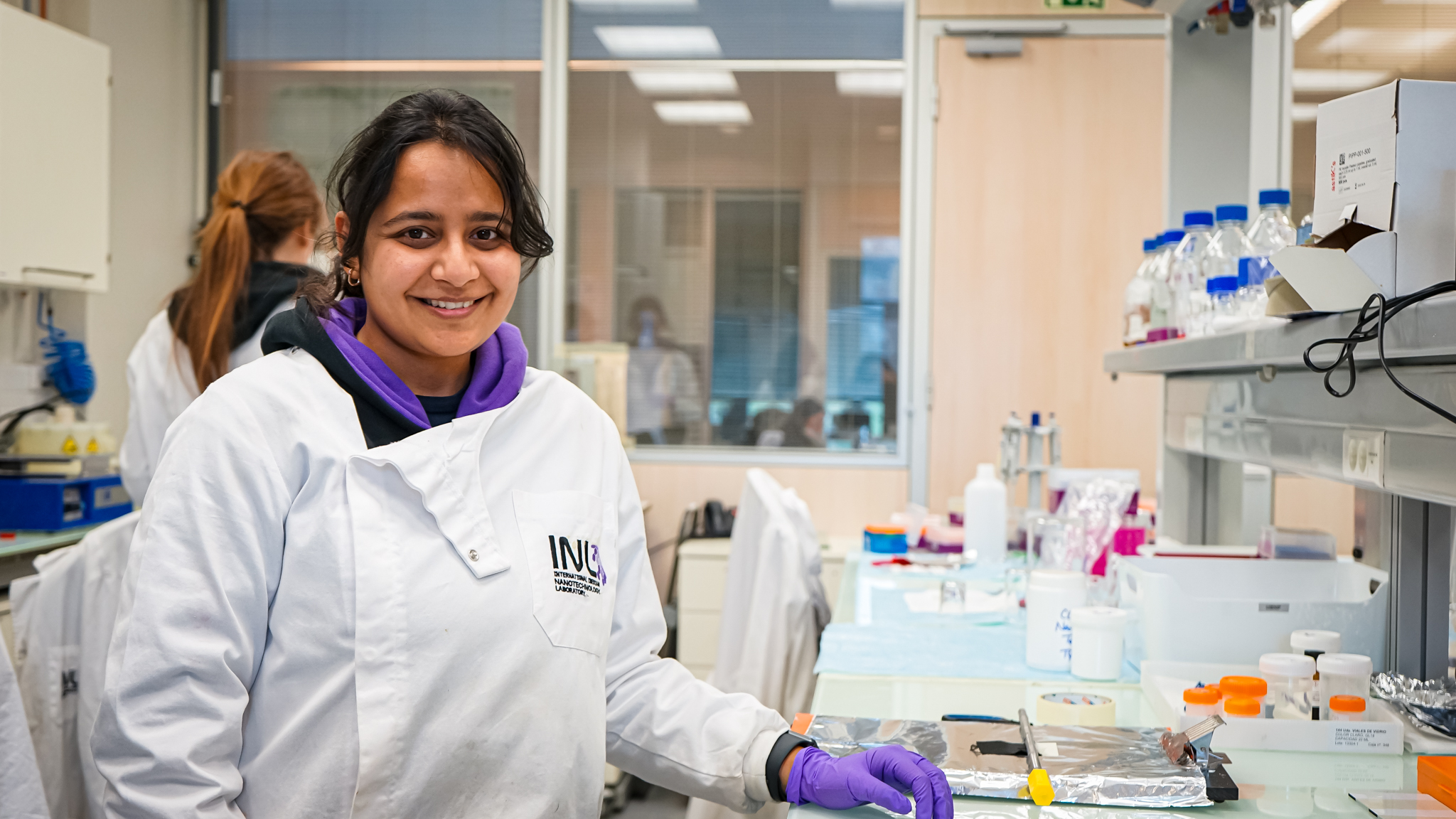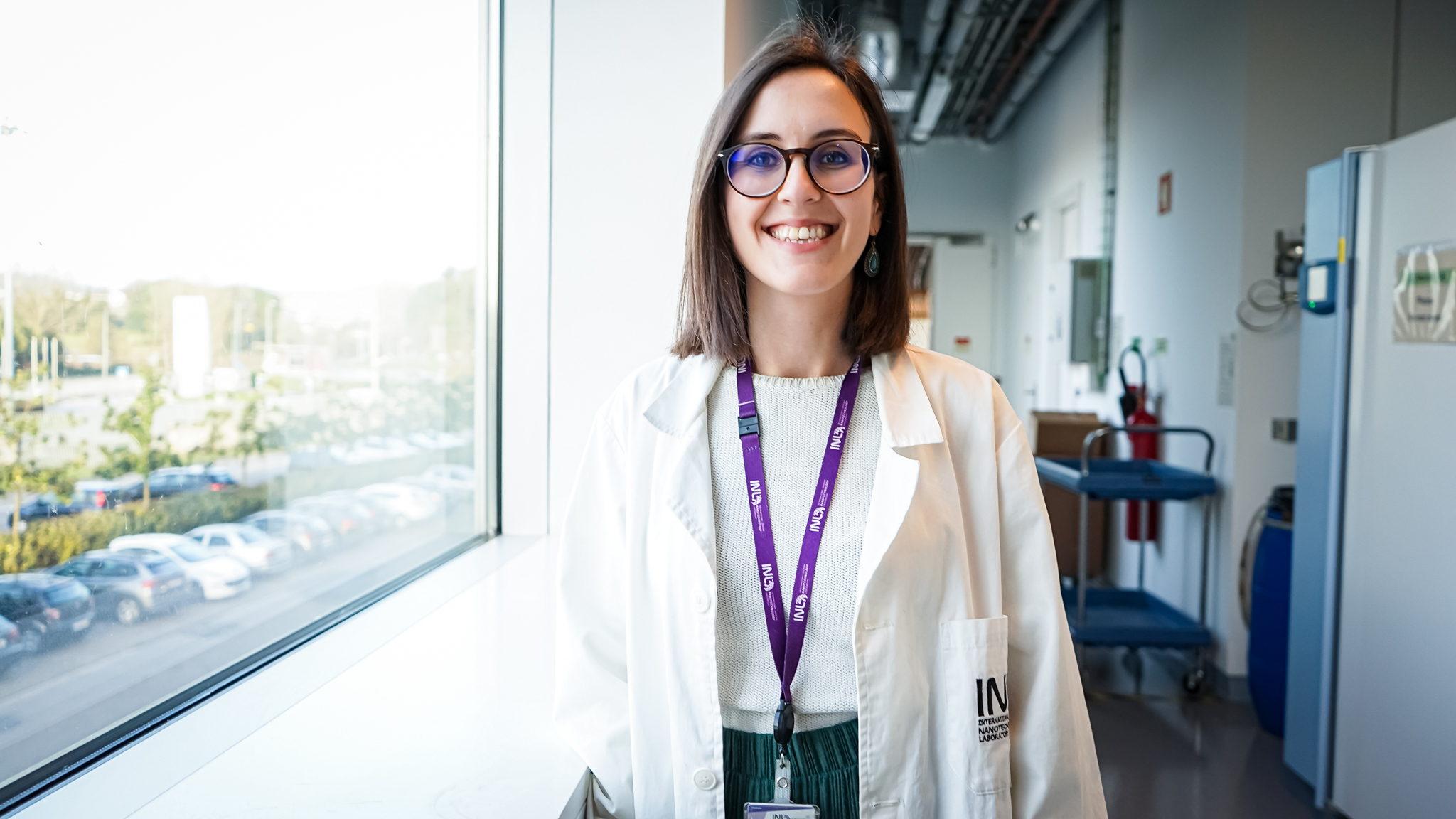
Game-changing and disruptive technology as a biosensor researcher, an interview with Alejandro Garrido
June 7, 2022
Alejandro Garrido-Maestu joined INL – International Iberian Nanotechnology Laboratory in 2015 as a Marie Curie COFUND Research Fellow. Within this project, his research was aimed to develop a fast multipathogen detection lab-on-a-chip based on DNA amplification by loop-mediated isothermal amplification combined with gold nanoparticles.
Alejandro is now a Staff Researcher in the Food & Quality Research Group and his work is focused on the development, and application, of molecular methods for the detection and quantification of foodborne pathogens, the implementation of bacteriophages as fast detection tools, and discrimination among viable and dead microorganisms. To this end, he is working with different DNA amplification techniques such as PCR/ qPCR, LAMP, LCR and RPA.
Today, June 7, on World Food Safety Day, we aim to present our people and their work and at the same time draw attention and inspire action to help prevent, detect and manage foodborne risks, contributing to food security, human health, economic prosperity, agriculture, market access, tourism and sustainable development.
Can you tell us a bit about your path, your main area of work and the importance of your work?
I have a bachelor’s in biology a master’s in molecular biology and a PhD in microbiology and molecular biology. After my bachelor’s, I started to work as a microbiological analyst in a food testing laboratory and it was there when I started my research career working in the development of rapid methods for foodborne pathogen detection using real-time PCR. Upon completion of my PhD, I did a postdoc at the Emerging Pathogens Institute working on the synthesis of chitosan nanoparticles with antimicrobial activity. While there, I got a granted a Marie Curie COFUND fellowship to join INL to work on a similar topic to that of my PhD, rapid methods, but this time implementing isothermal nucleic acid amplification techniques as well as nanomaterials, this was in 2015 and since then, this has been my major focus.
Food testing is key to assuring the safety of consumers, thus reliable methods are always needed, and even though there are many available, in food microbiology, they tend to be lengthy, and you may need up to a week to reach a result. The type of work that I do at the FQS group at INL is devoted to reducing the time of analysis in this particular application, many producers cannot afford such delays in getting the results of an analysis in order to commercialize their products, without compromising the sensitivity or the specificity of the assays.
Dairy products have been implicated in foodborne infections and resistance to sanitation processes caused by different bacterial pathogens.
How the development of novel methods for rapid detection can change and help the current food and health burden of diseases and systemic illnesses?
The problem associated with this type of product is the fact that they tend to be prepared with raw milk, which has not undergone any kind of treatment to eliminate pathogens which may potentially be present. It is in this type of product that novel methodologies can make a difference. On the one hand, as just commented some of these products do not receive any kind of treatment they have short shelve lives thus it is of great importance to have the results as soon as possible in order to safely release the products. In addition to this, due to the sensitivity of these assays, they can be used for tracing contamination sources, not directly linked to the foodstuff itself, in the processing facilities. In the end, the combination of sensitivity, specificity and reduced turnaround time allows to assure the safety of the consumers and reduces the economic impact in the producers.
What inspires you and excites you about science?
I read somewhere something like “science is true whether you believe it or not”. So, it is based on facts and as such, it is a powerful tool to address the many different challenges that I face in my research and allows us to solve specific problems others may have.
As commented before, my background is the application of DNA-based methods to detect bacterial pathogens, but I can also use them for other purposes, up to now I have used my previous expertise for the identification of allergens, invasive species or even, very recently to detect SARS-CoV-2 in clinical samples.
And last but not least, any advice for students considering a career in science?
I always give the same piece of advice, if you want to do it go for it, and don’t let others stop you with things like “you’ll never find a job related to that” or similar comments, which I have personally heard several times.
It is true that it may be harder than other types of careers however, if you try hard you’ll make it. I have never been a brilliant student, but I loved what I was doing, after my bachelor it took me 6 months to get my first job related to “biology” and ever since this was 2006, I have never stopped working in science. I had to move to different places and countries (Barcelona, USA, Portugal…), and eventually even worked for free (for a short period of time), but I pushed for it and I believe I have succeeded. So, never stop!
Let’s all be inspired by Alejandro’s path, work and experience and let’s all work on improving food safety systems and chains. Because, food safety has a critical role in assuring that food stays safe at every stage of the food chain – from production to harvest, processing, storage, distribution, all the way to preparation and consumption. Remember, food safety is everyone’s business.
